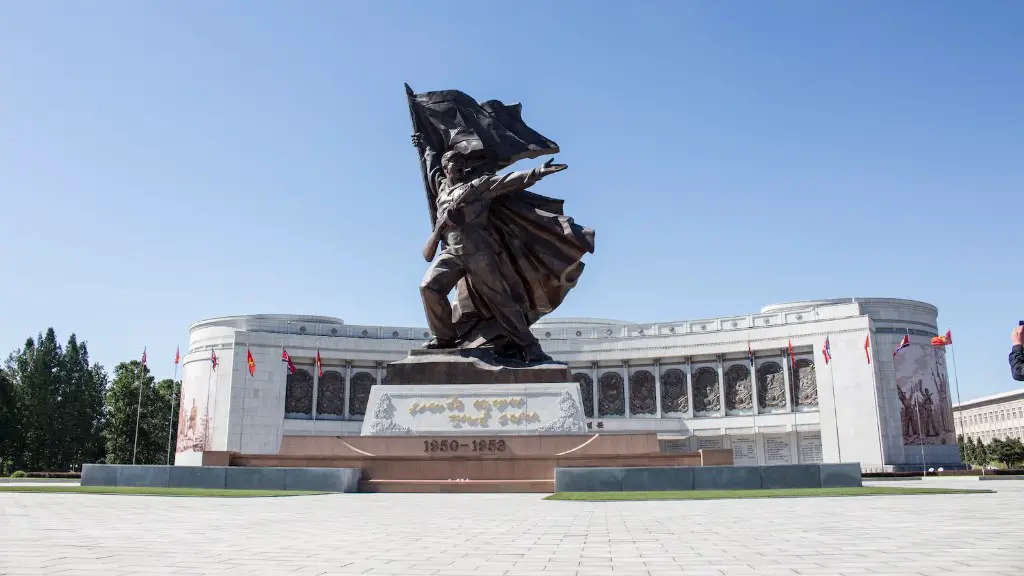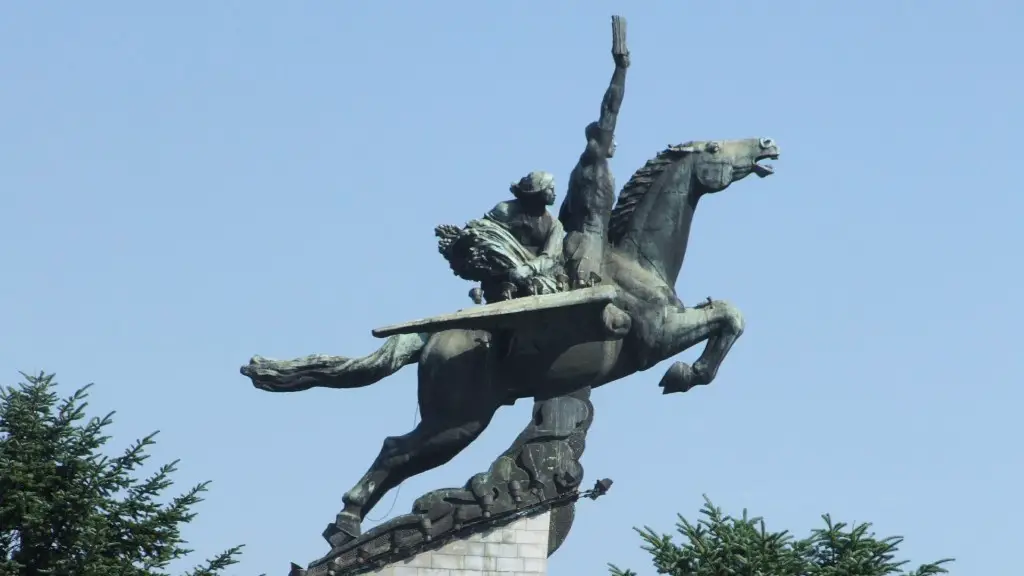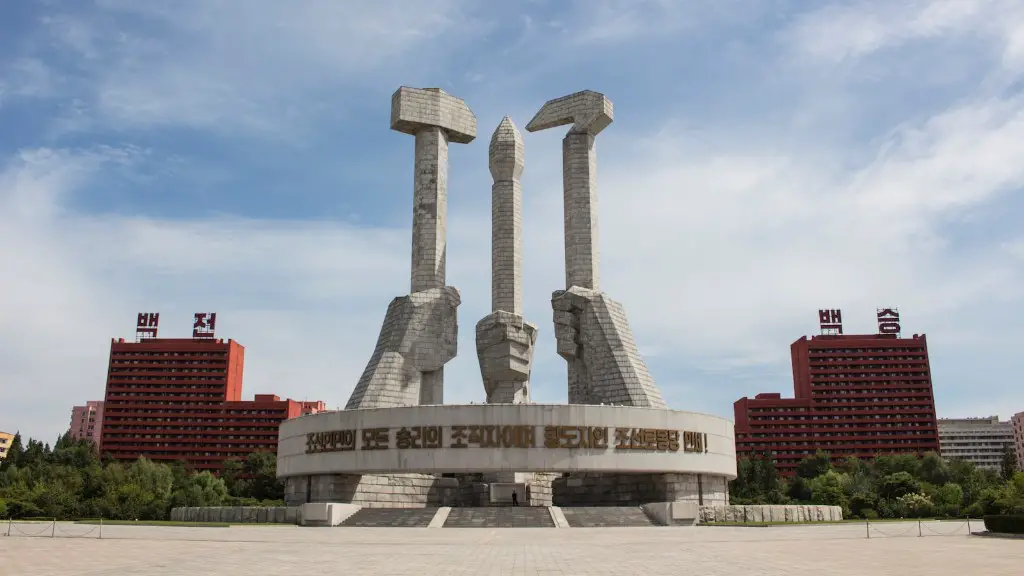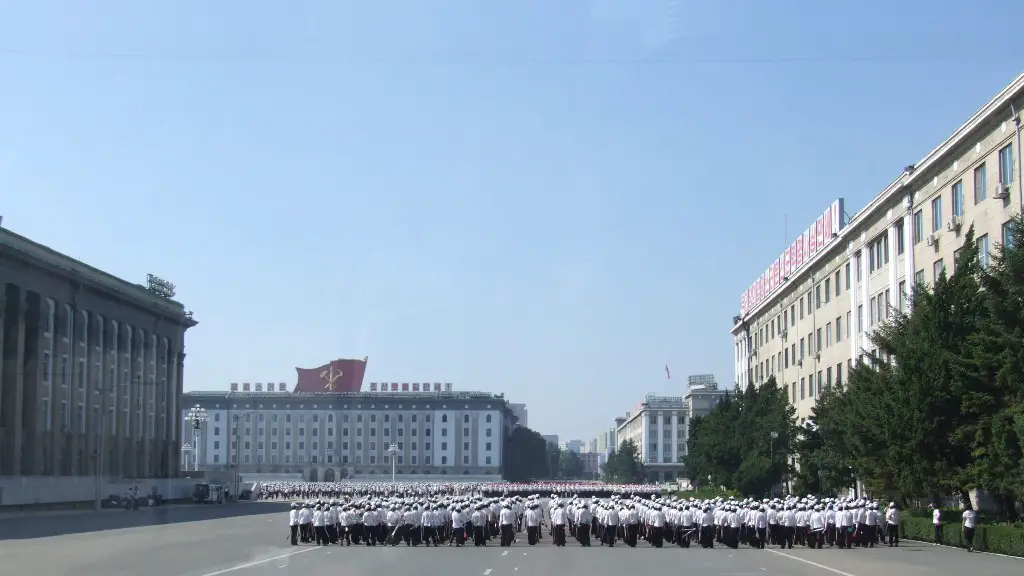Introduction
North Korea, an infamous dictatorship known for its ruthless repression of its citizens’ opportunities to move freely, has a policy of severely restricting freedom of movement. From 1967 until 2001, leaving or attempting to leave the country without permission was considered a political crime, and later became one of the harshest crimes in the country. Other reports estimate that around 400,000 North Koreans have fled the country since the mid-1990s, many of them by crossing the border into China. Despite numerous human rights violations and a dire humanitarian situation, many citizens have managed to escape from their oppressive homeland to a better life abroad. This article seeks to answer the question, “Can someone from North Korea leave?”
Human Rights and Political Situation
North Korea has long suffered from a highly oppressive government, a lack of access to basic human rights, and a closed-off society. The country’s constitution guarantees citizens the right to free movement, but this right is restricted severely by the government. All citizens must obtain permission from the state before they can leave the country, which is almost always denied. Any North Korean attempting to leave the country without authorization is at risk of harsh punishments, including imprisonment, torture, and even execution.
Even for those who legally obtain permission to travel abroad, there is an extensive system of restrictions and surveillance. According to some estimates, up to 90% of people trying to leave the country are denied permission or returned to the country by security forces, even if they have a legitimate reason to travel. Additionally, those who do manage to leave the country legally must report to the government upon their return, or risk facing severe punishment.
The UN Commission of Inquiry for the Human Rights Situation in North Korea (COI) has documented numerous severe human rights violations in the country, including arbitrary detainment, torture, mass starvation, and forced labor. The commission has noted that the right of all North Koreans to leave the country and be free to return home is still severely restricted by the state.
Escaping North Korea
Despite the grave risks associated with attempting to escape North Korea, the country is still one of the leading sources of refugees in the world. Many North Koreans risk their lives to leave their homeland in search of a better life abroad. Most refugees flee the country by finding smugglers to help them cross the border into China, where they can then seek asylum.
The smugglers are usually organized crime syndicates that have been operating for years and have extensive networks in both countries. They can help refugees cross the border through vast networks of agents and guides and provide hospitality throughout the journey. Though it is expensive and extremely dangerous, this network has proven to be an invaluable lifeline for thousands of desperate refugees.
In recent years, the number of people attempting to leave North Korea has increased significantly. This is largely due to the worsening economic situation and growing dissatisfaction with the government’s oppressive policies. Additionally, the experience of other North Korean refugees abroad has also created an environment where more people feel emboldened to take the risk of escapading.
Risks and Challenges
Leaving North Korea is a dangerous and difficult endeavor and carries numerous risks, including harsh punishments and even death. Many refugees have been arrested and detained in North Korea after their attempted escape, leading to imprisonment, torture, and in some cases, execution. Even those who manage to escape are often faced with extreme poverty, dangerous living conditions, and deportation to North Korea if they are caught.
Additionally, the journey itself is fraught with danger. Smugglers often demand high fees and are known to abandon refugees once they have been paid. Refugees also face the constant risk of detection by authorities, which can lead to arrest, deportation, or even death.
The journey itself is incredibly long and arduous, often taking weeks or months and involving multiple countries. Refugees must usually cross the border into China and then travel through other countries such as Laos, Thailand, and Vietnam before reaching their final destination. Along the way, they must evade capture, secure safe transportation, secure food and shelter, and cope with the harsh conditions of the journey.
Help and Support From Abroad
Despite the immense risks and challenges involved in escaping North Korea, thousands of refugees have managed to reach safety and new lives abroad. Many organizations such as Liberty in North Korea (LiNK) have been established to help refugees who have escaped the country and are seeking asylum abroad. These organizations provide vital assistance in the form of financial support, housing, and legal aid.
The role of foreign governments in helping North Korean refugees has also been crucial. Countries such as the United States, South Korea, and China have offered financial aid and other forms of assistance to refugees seeking new homes. In addition, the governments of many countries have pledged to provide safe harbor to North Korean refugees and have granted them asylum to ensure their safety and security.
International Cooperation
The international community has also taken steps to address the North Korean refugee crisis. In 2004, the United Nations adopted the “Protection of North Korean Refugees” resolution with unanimous support. The resolution calls on all countries to provide protection and assistance to North Korean refugees, to ensure their safe passage, and to grant them access to international protection.
In 2015, the United Nations adopted its first ever resolution condemning North Korea’s human rights abuses and calling for accountability for those responsible. The resolution calls for the immediate release of all political detainees and an end to the country’s repressive policies, including freedom of movement. The resolution is seen as a crucial step towards improving the human rights situation in the country.
Additionally, countries around the world have also pledged to fund a range of initiatives aimed at helping North Korean refugees adjust to their new lives and protect them from exploitation. These initiatives include educational and employment assistance, health care services, and legal aid.
Conclusion
While North Korea continues to suffer from an oppressive political system and lack of access to basic human rights, many citizens have nonetheless managed to escape the country in search of better lives abroad. Despite the numerous risks and challenges associated with attempting to escape North Korea, thousands of refugees have managed to find refuge in other countries. While the country’s plight continues to remain dire, the international community has taken steps to address the situation, by committing to provide assistance and protection to North Korean refugees.




